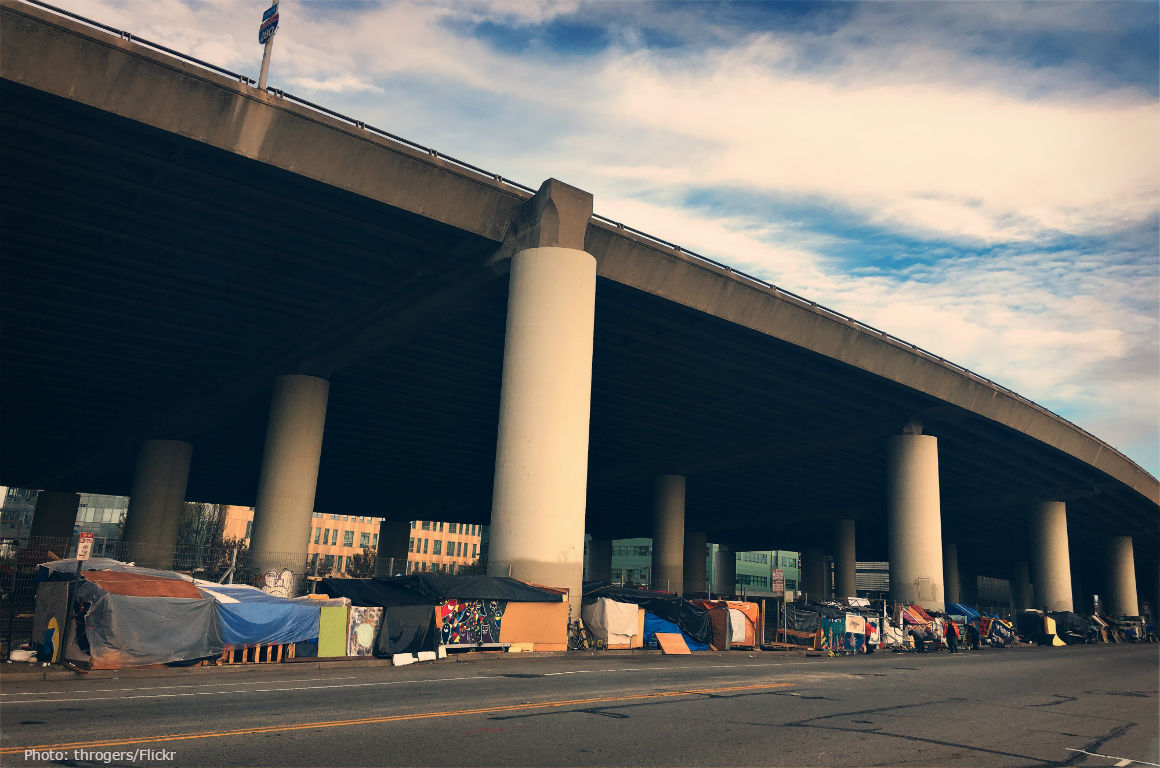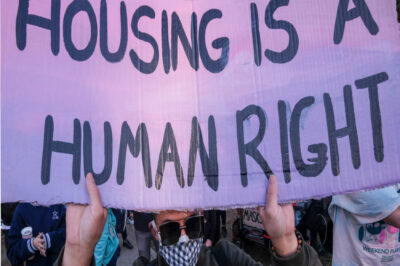
City of Grants Pass v. Johnson
Amicus Curiae Brief
A “friend of the court” or amicus, brief is filed by someone not a direct party to the case, but who has an interest in its outcome. These briefs seek to supplement the merits briefs by offering the Court additional arguments and information. Amicus briefs can be filed at the merits stage or at the certiorari stage.
What's at Stake
Whether punishing unhoused people who for sleeping in public when they have no access to shelter violates the Eighth Amendment’s prohibition on cruel and unusual punishment.
Stay informed about our latest work in the courts.
By completing this form, I agree to receive occasional emails per the terms of the ACLU's privacy statement.
Summary
The City of Grants Pass, Oregon passed ordinances barring people from sleeping outside in public using a blanket, pillow, or even a cardboard sheet to lie on. Under these ordinances, unhoused people could be saddled with hundreds of dollars in fines and even jail time for sleeping outside, even they had no alternative because the city lacked enough shelter beds. A group of unhoused residents challenged the City’s enforcement of these laws against them as violating the Eighth Amendment’s cruel and unusual punishments clause.
The Ninth Circuit Court of Appeals ruled that criminally punishing unhoused people for sleeping outside violates the Eighth Amendment “if there are no other public areas or appropriate shelters where those individuals can sleep.” The court held that this was effectively punishing people for the status of being homeless.
The ACLU and affiliates in 18 states submitted an amicus brief urging the Court to uphold the Ninth Circuit’s decision, but also urging the Court not to undo decades of doctrine holding that disproportionate criminal punishment can be cruel and unusual.
The ACLU brief argues that the Eighth Amendment’s broad language prohibiting the infliction of “cruel and unusual punishments” was understood at the time of its adoption to the U.S. Constitution to embody the principle of proportionality, meaning that a punishment must be appropriately tailored to the seriousness of the offense. For over a century, the Supreme Court has inteprreted the Eighth Amendment to require a punishment to match the severity of the offense and the blameworthiness of the defendant and further the aims our criminal legal system. The ACLU brief argues that where the “offense” involves sleeping outside where no alternative shelter exists, any punishment, including the fines and jail time imposed by the city, is plainly disproportionate.
Legal Documents
Press Releases
ACLU Responds to Supreme Court Decision that Cities Can Punish People for Being Homeless
As Supreme Court Hears Grants Pass v. Johnson, ACLU Reiterates Call to Uphold Eighth Amendment Protections
ACLU Brief Urges Supreme Court to Uphold Eighth Amendment Protections in Grants Pass v. Johnson

